Conquest

Brief Synopsis
Cast & Crew
Clarence Brown
Greta Garbo
Charles Boyer
Reginald Owen
Alan Marshall
Henry Stephenson
Film Details
Technical Specs

Synopsis
In Eastern Poland, in January 1807, the home of the Count Walewska and his wife Marie is overrun by pilaging Russian soldiers who make fun of the young countess and her aging husband. Soon after they leave, Marie's brother, Paul Lachinski, arrives and enthralls Marie with tales of the French Emperor Napoleon, whose armies have just arrived in Poland. Later, Marie briefly encounters the emporor near a church and is as impressed with him as he is with her. Two months later, Marie and her husband are formally introduced to Napoleon at a ball at the Poniatowski Palace in Warsaw, and she is pleased that he does not reveal their earlier brief meeting, but is uneasy about his obvious attraction to her. When he sends notes to her proclaiming his admiration and suggesting that her responsiveness would benefit her country, she is upset and confides in her husband. He wants to take her away, but when some of the Polish leaders beg Marie to give in to Napoleon to save their country, she decides to go to him. When she returns to the count, he leaves her. Soon Napoleon and his personal staff take quarters in Marie's home. Although she is antagonistic toward him at first, her sympathy for his inner loneliness soon softens her feelings and she returns his love. They become more and more happily in love, but her happiness is marred by her brother's adverse reaction to their relationship and by Napoleon's long absences. Two years later, while Napoleon seeks a divorce from his wife, the count obtains an annulment of his marriage, and Marie secretly awaits the birth of her child. She is summoned to Vienna to join Napoleon, but when she arrives, she learns that Napoleon is planning to marry the Princess Marie Louise of Austria in the hopes of establishing a strong dynasty. Though she is shattered, Marie accepts Napoleon's marriage and leaves him to have her child alone. During the course of the next few years, Napoleon suffers many defeats. His army is forced to retreat from their position in Moscow and, despite a last attempt to recapture his former empire, he eventually loses everything at the Battle of Waterloo. In his final exile on the island of Elba, he sends for Marie. She and her son Alexandre go to him and stay with him until he dies.

Director

Clarence Brown
Cast

Greta Garbo

Charles Boyer
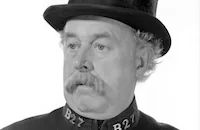
Reginald Owen
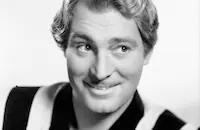
Alan Marshall
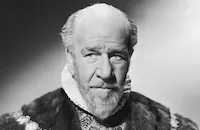
Henry Stephenson

Leif Erickson
Dame May Whitty

C. Henry Gordon

Maria Ouspenskaya

Claude Gillingwater

Vladimir Sokoloff
George Houston

Scotty Beckett

Henry Kolker
Ivan Lebedeff
Bodil Rosing
Lois Meredith
Oscar Apfel
Betty Blythe
George Davis
Dr. Ferid
Pasha Kahn
Carlos De Valdez
Roland Varno
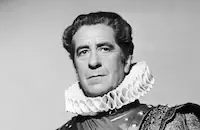
Robert Warwick

Ian Wolfe
Jean Fenwick
Rosina Galli

Ralf Harolde

George Givot
George Cowl
Winifred Harris

Edward James Flanagan
Francis Mcdonald
Robert Graves

Wilfred Lucas
Albert Conti
John Picorri
George Sorel
Paul Sutton
Adia Kuznetzoff

Yakima Canutt
Norman Phillips Jr.
Tom Herbert
Guy D'ennery
Sidney Bracy

Lee Phelps
Aileen Carlyle
Sue Moore
Kay Deslys
James Marcus
Laura Treadwell
Grace Goodall

Harry Cording
Chris Frank
Francesco Maran
Alphonse Martell
Ramsay Hill

Fred Malatesta
Cyril Thornton

Henry Brandon
Lew Harvey
Frank Mcglynn Jr.
Frank Lackteen
Edwin J. Brady
Jacques Vanaire
Dorothy Vaughan
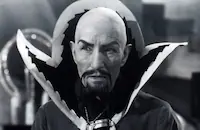
Charles Middleton
Mitchell Lewis
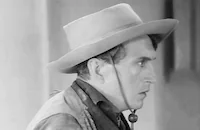
Paul Fix
Olaf Hytton
D'arcy Corrigan
Eric Wilton
Lee Prather
Lane Chandler
Louis Natheaux
Alexander Akimoff
Edward Peil Sr.
Harry Semels
Art Miles
Joseph E. Bernard
Ethan Laidlaw
Arthur Belasco
Ben Hall
Eddie Foster
Mitchell Ingraham
Philip G. Sleeman
Kenneth Terrell
Paul Parry
Crew
Adrian
Alexander Akimoff
Zoë Akins
Sergei Arabeloff
S. N. Behrman
J. J. Cohn
Jack Dawn
Karl Freund
Cedric Gibbons
William Grimes
Tom Held
Samuel Hoffenstein
William A. Horning
Bernard H. Hyman
Talbot Jennings
Wilma Roelof
Douglas Shearer
Herbert Stothart
Trabert And Hoeffer, Inc., Mauboussin
Salka Viertel
Edwin B. Willis

Photo Collections
Videos
Movie Clip




Trailer
Film Details
Technical Specs

Award Nominations
Best Actor
Best Art Direction
Articles
Conquest
It would be her final assignment with Brown, who had helped shepherd her through such silent films as Flesh and the Devil (1926) to the talkies, in Anna Christie (1930). Brown once commented on their unique rapport, saying, "I had a special way with her. I never gave her direction in anything louder than a whisper.... She liked it that way."
Napoleon's romance with a Polish countess supplied the plot for Conquest, a lavish period drama. Illustrating the tug-of-war nature of the film's production, the script not only bore the marks of the 17 writers who worked on it, but changed titles on a seemingly daily basis. It was known in its European release as Marie Walewska, but that name was deemed too difficult to pronounce for American audiences. Other titles ultimately discarded included Flame of the Century, Symphony Without Music, A World Is Born, and The Woman Before Waterloo. As a lengthy five-month shoot wound to a close, the cast and crew had dubbed themselves members of the "Walewska-Must-End Association."
Casting male leads capable of holding their own against Garbo, a formidable and intimidating actress, was never an easy task. In Charles Boyer, however, MGM had not only found a Frenchman to take on the role of one of the most famous of his countrymen, but someone who could also match Garbo's intense style. Boyer's career accelerated during the 1930s, as he found himself playing opposite the likes of Marlene Dietrich, Hedy Lamarr, Irene Dunne and finally Garbo in Conquest. Boyer later admitted nervousness about playing the great historical figure: "I was fearful that, to the French people, no performance of Napoleon Bonaparte, not even a perfect one, would be satisfactory." Boyer had little to fear after the film was released, however; one critic for the New Yorker commented that "for the first time, Garbo has a leading man who contributes more to the interest and vitality of the film than she does." The role would earn Boyer an Academy Award nomination; Garbo was also nominated that year -- for her role in Camille.
Conquest was more successful in Europe than America, title notwithstanding, but today it is recognized as a worthy final collaboration between Garbo and Brown, her favorite MGM director.
Producer: Bernard Hymann
Director: Clarence Brown
Screenplay: S.N. Behrman, Samuel Hoffenstein, Salka Viertel, based on the novel by Waclaw Gasiorowski
Production Design: Cedric Gibbons, William Horning
Cinematography: Karl W. Freund
Costume Design: Adrian
Film Editing: Tom Held
Original Music: Herbert Stothart
Cast: Greta Garbo (Marie Walewska), Charles Boyer (Napoleon), Reginald Owen (Talleyrand), Alan Marshal (Captain d'Ornano), Henry Stephenson (Walewska), Leif Erickson (Paul Lachinski), Dame May Whitty (Laetitia Bonaparte), Maria Ouspenskaya (Countess Pelagia Walewska).
BW-112m. Closed captioning.
by Genevieve McGillicuddy

Conquest
Quotes
Trivia
This film lost more money for MGM than any other of its films during the period from 1920 to 1949.
Notes
The working titles of the film were Madame Walewska and Marie Walewska. An onscreen prologue reads: "This is a story of an historic love, the imaginative detail supplied by the dramatist has not violated the spirit of this immortal romance." According to a feature article in Stage in October 1937, the film cost in excess of $2,000,000, and Monterey, CA was used as a location subsitute for the island of Elba and Napoleon's retreat from Moscow was filmed partially at the Los Angeles Ice and Cold Storage Company. The article also notes that Greta Garbo first brought the Wacla Gasiorowski book to the attention of M-G-M executive producer Irving Thalberg in 1934. A news item in Hollywood Reporter in November 1935, noted that M-G-M had just bought the rights to the book, and its English language dramatization by Helen Jerome, as a vehicle for Garbo and Charles Boyer. A February 9, 1937 Hollywood Reporter news item noted that Robert E. Sherwood, Zoë Akins and David Boehm had been engaged to work on the script for the film in addition to two of the writers credited onscreen, Salka Viertel and S. N. Behrman. Early Hollywood Reporter production charts include Akins and Talbot Jennings as additional writers on the film. The extent of Sherwood's, Boehm's, Akins' and Jennings' contributions to the released film has not been determined.
A Hollywood Reporter production chart includes Shepperd Strudwick in the cast, however, he was not in the viewed print and is not mentioned in other contemporary sources. A modern source notes that Czech director Gustav Machaty worked as a fill-in director during Clarence Brown's brief illness, which May have been Machaty's first work in the as a director in the United States. His first credited film was Within the Law in 1939 (see below).
According to information in the Howard Dietz Collection at the AMPAS Library, Conquest cost $2,732,000 to produce and grossed $2,141,000, resulting in a net loss for M-G-M of $1,397,000. Comparison of these figures with budgets and grosses of other M-G-M films indicates that the film lost more money than any other picture made by the studio from the 1920s through the 1940s.
Variety review notes that Alexandre Walewska, the son of Marie and Napoleon was a diplomat of some distinction during the mid-nineteenth century and achieved more fame than either of the former emperor's other two sons. It also notes that by historical record Marie and Alexandre were among the few faithful followers who stayed with Napoleon until the end. A 1966 Polish film entitled Marie Walewska was based on the same source as the 1937 M-G-M version.

Miscellaneous Notes
Released in United States 1937
Released in United States 1937














